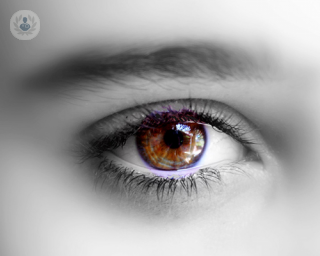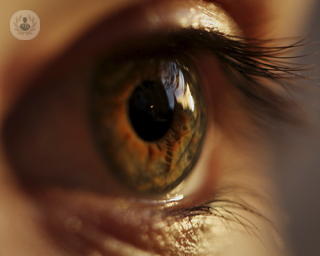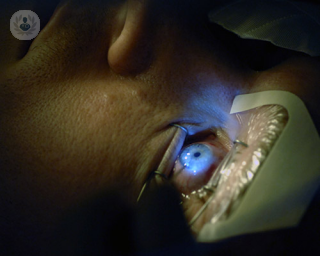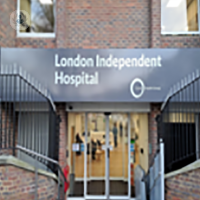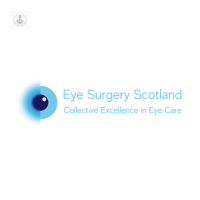Laser eye surgery
What is laser eye surgery?
Laser eye surgery, also known as refractive surgery or laser vision correction, is a procedure that involves reshaping the cornea using a laser to correct vision problems. The cornea is the clear “window” at the front of the eye and is responsible for focusing light that enters your eye on the retina. If the light isn’t correctly focused, it causes unclear vision.

Why is laser eye surgery done?
Laser eye surgery is generally performed to correct your vision if you see things out of focus, meaning you will be less dependent on glasses or contact lenses.
Laser eye surgery can correct common problems such as:
- myopia (short-sightedness)
- hyperopia (far-sightedness)
- mild astigmatism
The surgery has been performed for over 25 years with exceptionally high success rates. It is quick, and there are no stitches or bandages required after.
Who is laser eye surgery suitable for?
To be eligible for laser surgery you generally need to be over the age of 18 and have a steady prescription (one which has not changed in the last two years). Your cornea must be clear, not thin or uneven and you must have normal, healthy eyes.
Laser eye surgery is unsuitable for those who:
- Are pregnant or breastfeeding
- Take certain prescription medications, including isotretinoin, steroids, and retinoic acid
- Have other health issues, like diabetes, lupus, or arthritis
How much does laser eye surgery cost?
Despite the increasing popularity of laser eye surgery, the treatment is quite expensive, costing £1,000 or more for each eye. While laser eye surgery is performed on the NHS, it is only offered in cases where a corneal condition needs treatment.
How do you prepare for laser eye surgery?
Before the surgery, you will meet with the eye surgeon who will discuss the procedure with you, including what you can expect prior to and after the operation. A full medical history will be taken as well as an assessment of your eyes’ health. Avoid wearing contacts a few days prior to this appointment and bring your glasses to the appointment so that the doctor can assess the prescription. All queries and uncertainties will be answered, and if deemed suitable, then a date for your surgery will be arranged.
Pre-operation it’s important to:
- Find someone who can take you home afterwards as you won’t be able to drive home following treatment.
- Avoid drinking alcohol since this can dry out your eyes.
- Arrange local accommodation if you are travelling far for surgery.
One the day of the procedure, to ensure an optimal outcome:
- Eat a light meal
- Take prescribed medication as normal
- Don’t wear anything, like eye makeup or hair accessories, that might complicate the procedure
- Avoid using hair spray, perfume, or aftershave as these can contain alcohol and can dry out your eyes and affect the performance of the laser
How is laser eye surgery performed?
The main types of laser eye surgery are:
- LASIK (laser-assisted in situ keratomileusis) is the most common method and involves opening a thin flap with a small instrument called a microkeratome or a femtosecond laser on the surface of the cornea, which is then peeled back to allow reshaping of the cornea underneath with the use of another laser.
- Surface laser treatments (including LASEK and PRK) – a less common treatment which involves removing the skin of the cornea, reshaping the cornea underneath, then allowing the skin to grow back. This treatment option is better if you have a thin cornea or you participate in contact sports.
- SMILE (small incision lenticule extraction) – this is a more recently developed form of laser eye surgery which involves only a very small incision on the surface of the eye, reducing the chances of dry eyes after surgery.
Eye drops are used to numb the eyes and, in some cases, mild sedatives may also be used. All laser eye surgery procedures are quick, taking about 15 minutes to complete.

Is laser eye surgery painful?
Very little, if any, pain is experienced with a LASIK procedure. Discomfort, in the form of dry eyes, is more commonly experienced. Surface laser treatments can cause some discomfort for a day or two after surgery.
What are the side effects of laser eye surgery?
Laser eye surgery is a complex surgery. After surgery there is a chance of developing the following complications:
- Mild discomfort in the first few weeks after surgery
- Eyes are dry and feel scratchy
- Temporary red marks in the whites of your eyes
- Loss of night vision, causing scattering of light, which can affect driving at night
- Sensitivity to light
- Glare and haloes, when around bright lights, might occur
- Small bruises on the eyes
In addition to this, a number of patients may need to go back to the clinic for more surgery. Although rare, problems that permanently affect the vision can develop.
What does recovery following laser eye surgery look like?
Following surgery, the eyes will be dry. Eye drops will be prescribed to protect against infection and inflammations, as well as combating dryness. Within a few days, the majority of patients notice an improvement in their vision. Patients return to work and are able to drive, normally, a day after the surgery.
It’s advisable to avoid water activities, like swimming, for about two weeks to ensure the eyes heal and reduce the risk of complications developing. Wearing goggles protects against bacteria and particles that can irritate the eyes following surgery.
How long does laser eye surgery last? Is it permanent?
Even with surgery, vision can change as patients age. Normally, people need reading glasses as they get older but this is not a result of surgery, it is a natural part of ageing. If vision changes at a later date, the doctor can adjust the surgery to correct changes. One to ten per cent of people require revision surgery, depending on the amount and type of correction needed originally, the age of the patients and their individual visual requirements (which can change with time).
What are the alternatives to laser eye surgery?
If you have a high prescription or a strong form of astigmatism, you may be more suitable for positioning an additional lens in the eye – known as a phakic intraocular lens. The most common type of surgery is ICL surgery (ICL stands for implantable collamer lens), involving the insertion of a lens into the eye, like a contact lens, that is built-in permanently.
An advantage of this is that you can do things that can’t normally be done while wearing contact lenses like swimming or other water sports. Older patients, who are starting to need reading glasses, may be better candidates for refractive lens exchange, which is the same as a cataract surgery procedure where the natural crystalline lens of the eye is removed and a clear plastic ‘intraocular lens’ is put in its place.
What type of doctor performs laser eye surgery?
Specialist ophthalmic surgeons perform laser eye surgery.

